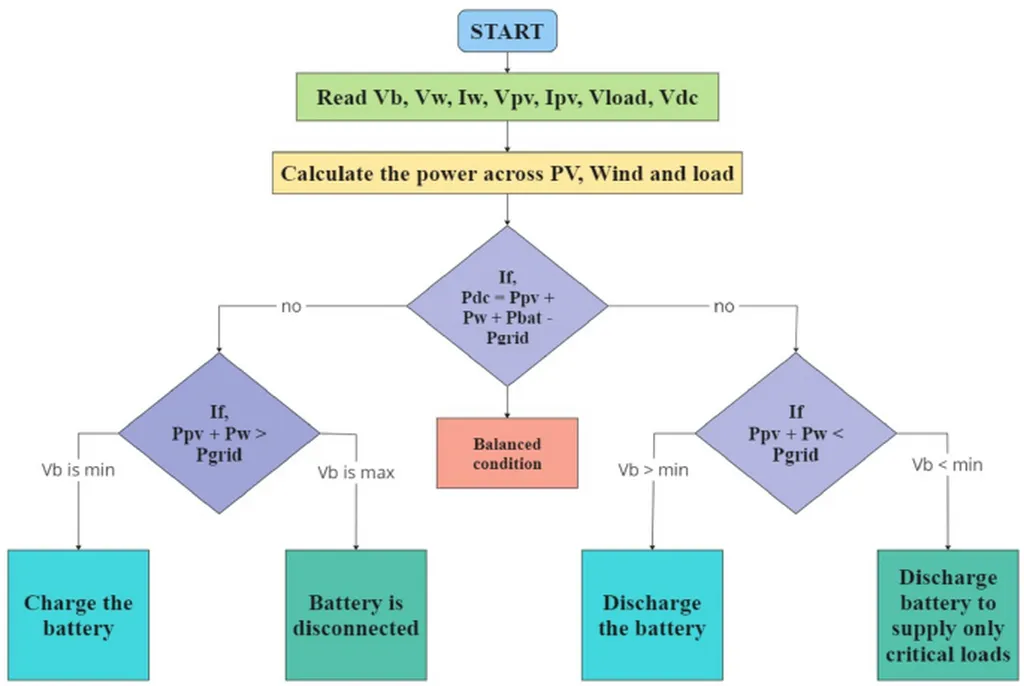In the rapidly evolving landscape of renewable energy, managing power flow efficiently within microgrid systems is a critical challenge. A recent study published in the journal *Nature Scientific Reports* offers a promising solution, with significant implications for the energy sector. The research, led by Kruthi Jayaram from the Department of Electrical & Electronics Engineering at BNM Institute of Technology, introduces a model reference adaptive controller designed to optimize power flow management in DC microgrid systems.
Microgrids, which are localized grids that can operate independently or in conjunction with the main power grid, are increasingly integrating distributed energy resources like solar and wind power. However, managing the intermittent nature of these resources and ensuring a stable power supply has been a persistent issue. Jayaram’s research addresses this challenge head-on.
“Our goal was to develop a controller that could enhance the efficiency of power flow management between distributed energy resources,” Jayaram explained. “By analyzing real-time laboratory data from solar and wind sources, we aimed to create a system that could regulate a constant voltage at the DC bus and maximize energy harvesting.”
The study initially employed a Proportional-Integral (PI) controller scheme, which, while functional, exhibited error indices around 30%. This meant that the system was not operating at its full potential. Enter the model reference adaptive controller. This advanced control strategy significantly reduced the error indices, improving the system’s overall performance and reliability.
“The model reference adaptive controller provides better control over the grid, ensuring that customer demands are met consistently,” Jayaram noted. This enhancement is crucial for the commercial viability of microgrid systems, as it ensures a stable and reliable power supply, which is essential for both residential and industrial applications.
The implications of this research are far-reaching. As the world shifts towards renewable energy sources, the ability to manage power flow efficiently within microgrids will be paramount. Jayaram’s work could pave the way for more robust and reliable microgrid systems, ultimately contributing to a more sustainable energy future.
Moreover, the commercial impacts are substantial. Improved power flow management can lead to reduced energy costs, increased system reliability, and enhanced customer satisfaction. For the energy sector, this means a more competitive market and the potential for significant growth in the microgrid industry.
As the energy landscape continues to evolve, innovations like Jayaram’s model reference adaptive controller will play a pivotal role in shaping the future of power management. By addressing the challenges of intermittent renewable energy sources, this research offers a glimpse into a more efficient and sustainable energy future.
Published in the prestigious journal *Nature Scientific Reports*, this study underscores the importance of advanced control strategies in the realm of renewable energy. As the world strives to meet its energy needs sustainably, such innovations will be crucial in driving the transition to a cleaner, more reliable energy system.

